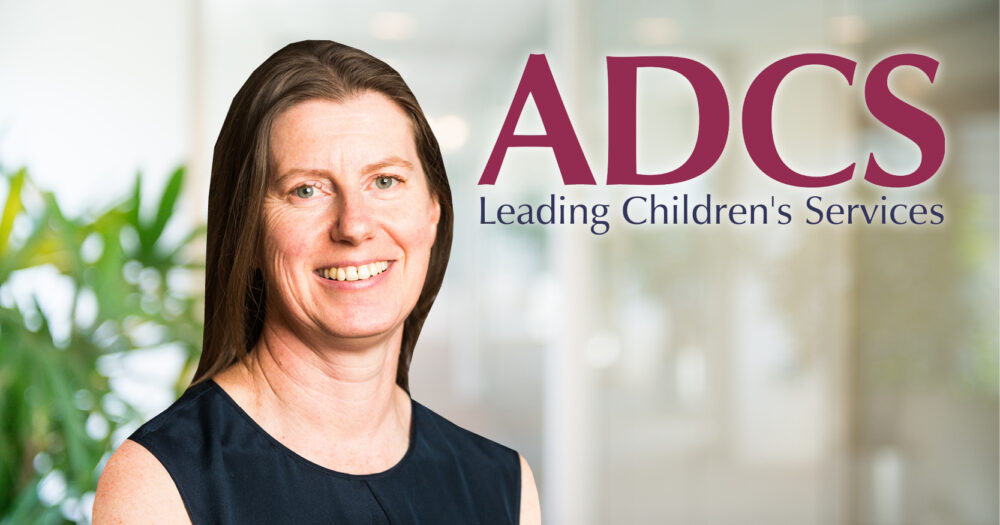Councils are “not interested in making life difficult for academies just for the sake of it” with new powers to oppose expansions, a senior local authority official has insisted.
But Rachael Wardell, the new president of the Association of Directors of Children’s Services, said schools needed to be “where the children are”, and that it was not helpful for any school to “expand beyond its local community”.
The Surrey director of children’s services also warned many councils would not have the capacity with current resources to deliver the extra responsibilities set out in the government’s schools bill.
The draft legislation will place a duty on all schools and councils to co-operate on admissions.
It will also hand the schools adjudicator powers to set school intake numbers, including for academies, where an objection to a school’s arrangements is upheld.
But in an interview with Schools Week, Wardell said DCSs “have a really mature interest in a thriving sector in our local authority footprint.
“We’re not interested in making life difficult for academies just for the sake of it,” she said.
Schools need to be ‘where the children are’
But she said schools needed to be “where the children are. So it’s not helpful to have one particular school of any type expand beyond its local community in a way that causes lots of children to seek to travel.
“It’s better to invest resource and attention in improving the school where it is to serve the community that it’s based in.”
The schools bill also gives local authorities sweeping new responsibilities. For example, they will need to maintain registers of children not in school, and even check if their home learning environments are suitable.
Do councils have the capacity to take on those extra roles?
“Probably, in a lot of cases, no, not yet. One of the things that we’ve seen is a significant reduction in the funding to local authorities for this kind of support infrastructure.”
A Schools Week investigation last year found that cash-strapped councils’ spending on support for home-educated pupils has soared by 73 per cent in six years, but some local authorities have no dedicated staff dealing with the issue at all.
Wardell said some councils “may have had a better funding foundation locally, and been able to maintain some of these teams.
“But for a lot of local authorities, it’s really shrunk. And so part of our ongoing dialogue with government is going to be about, if you want us to do these things, then we’re going to need to be resourced accordingly.”
Government must take responsibility for SEND deficits
One big “shared area of concern” for all directors of children’s services is around SEND provision.
The National Audit Office has warned that local authorities’ cumulative deficit could be up to £4.9 billion by next year, when a statutory override keeping the deficits off council balance sheets is due to come to an end.
The ADCS has called for the deficits to be “returned to the national balance sheet…for central government to decide what to do with it”, said Wardell, who blames underfunding of the 2014 SEND reforms for the deficits.
“It is a piece of national underfunding. The provisions of the [children and families act] should have been funded through the dedicated schools grant sufficiently, and they weren’t.
“So the debt is landed on council balance sheets, but it doesn’t need to be there.”
Won’t councils without deficits feel a write-off is unfair on them? Wardell points out there are “fewer and fewer councils with every passing year which don’t have SEND deficits”.
“I think that we need to pay attention on the impact across all of the councils, rather than that very small minority that still has their heads above water at this stage.”
But she added that “so many of the decisions are not in the hands of local authorities themselves.
“They’re directed by tribunals, and so it is absolutely not a debt that comes about through the mismanagement of local authority decision making. In many cases, we have turned down particular provision or decided not to assess and that is overturned at tribunal.
“So essentially, our hands are tied, and that is very much central government’s doing, because it’s the legislation, the legislative basis for those tribunal decisions. So I don’t think the argument [of unfairness] stands up very well.”
‘The system pits us all against each other’
She called for wide-ranging SEND reform, warning “we can’t continue to have a system that leads to worse outcomes for children.
“I think what we’d like to see is a wholesale review of what’s expected and what we are liking at the moment is hearing that focus on inclusive mainstream practice.”
Wardell also warned the “way the system is currently designed pits us all against each other.
“Schools against parents and against councils, parents against schools and against councils. Councils against parents and against schools. None of that is healthy.”
Parents “obviously want to see their children thrive” and “believe with their whole hearts that their child will do better in a specialist setting.
But that “often means that their child will be further away, will have to travel further and may well be in a school which is better for their temperament but doesn’t necessarily match their cognitive abilities.
“So there will be some children whose education is suffering as a result, even while it might be good for their wellbeing.”
She also warned that councils “are often directed” through the tribunal system to fund “packages to support children who are being educated other than at school that exceed the cost of a school place, even in the non-maintained independent sector.
“Quite extraordinary, and again, very questionable as to whether it’s offering the kind of suitable education that is envisaged under the legislation.”
‘Some important principles’ in Ofsted reforms
Wardell is a former senior manager at Ofsted, and believes changes coming to inspection will affect schools and children’s services “probably for the better overall”.
Ofsted is under growing pressure to rethink its proposed approach. But Wardell believes they should not go “all the way back to the drawing board.
“I think there are some really important principles that they should hold on to.”
She says one such principle is the need to be “really clear about how well a school serves the community it’s in, rather than the community that it self-selects.
“I think stepping away from single-word or two-word judgments into something that provides richer information for parents…There may be nuance around that, there may be things that need to be tweaked around that, but I think those important principles ought to stay absolutely.”
















Your thoughts